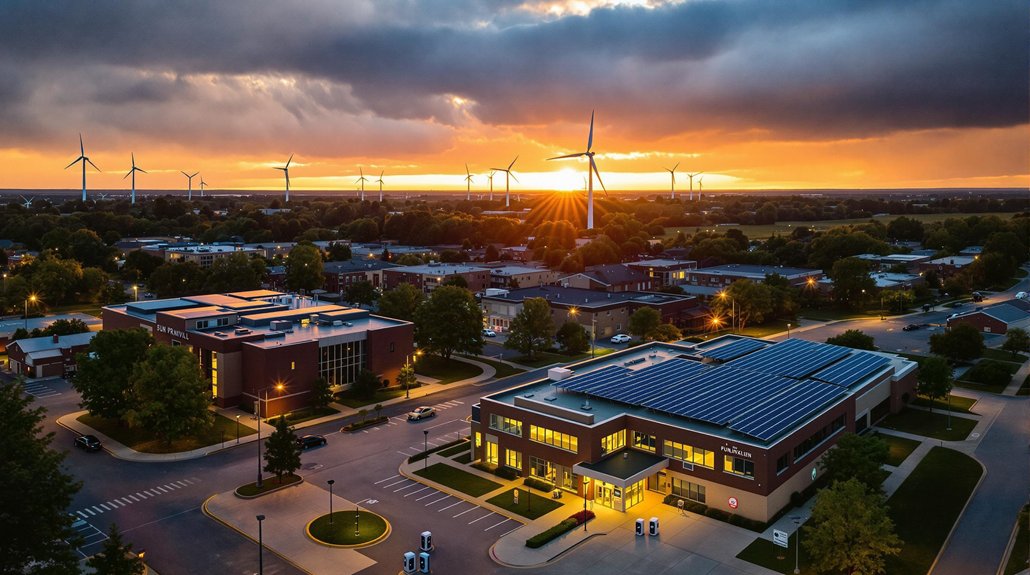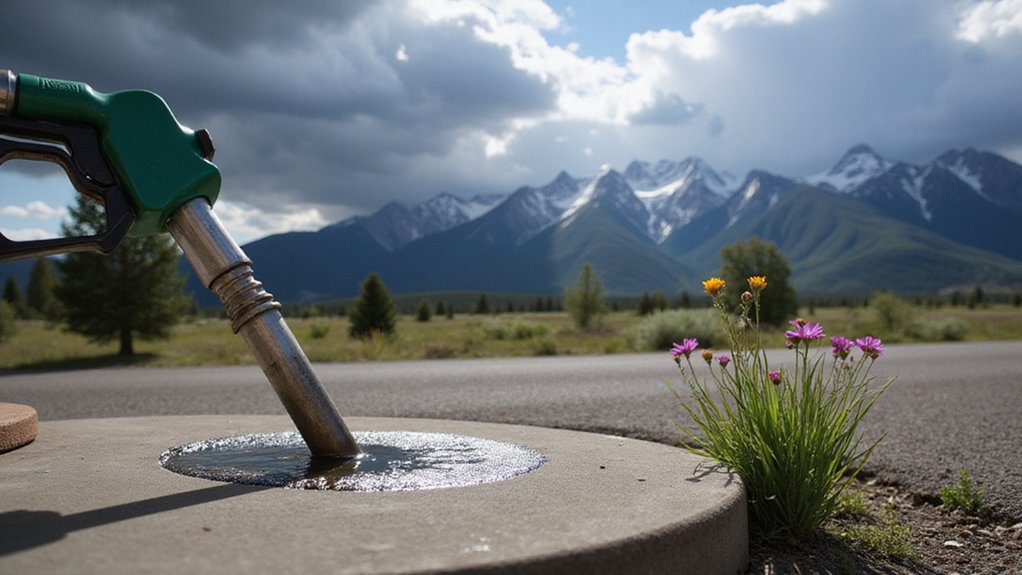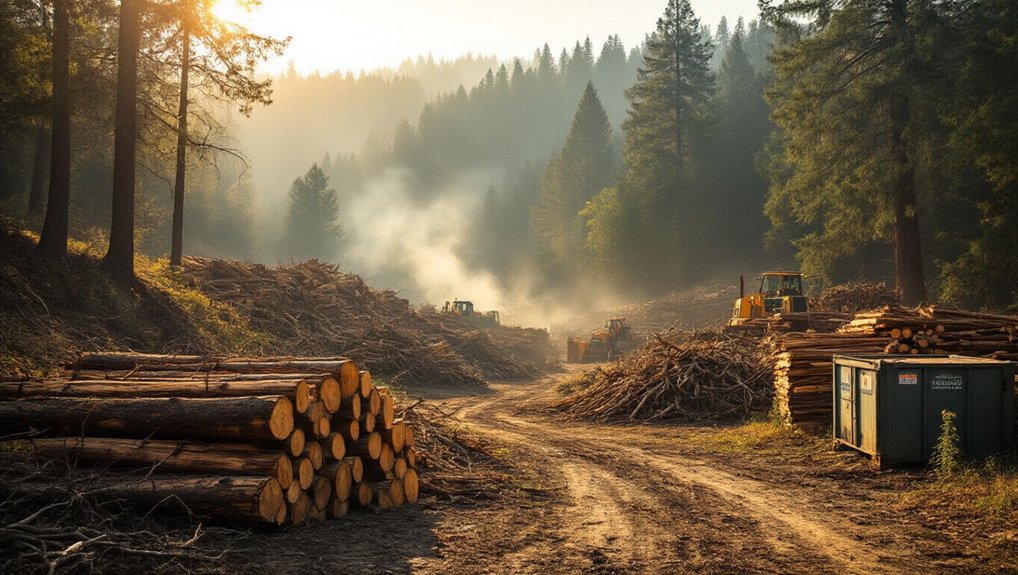Wisconsin cities are accelerating climate action with ambitious targets. Sun Prairie aims for 100% renewable electricity by 2025, mixing solar, wind, and biogas energy. Beloit targets carbon neutrality by 2040, collaborating with sustainability experts. Eau Claire, La Crosse, Wausau, and Wauwatosa have also adopted climate plans. These efforts align with Wisconsin’s statewide net-zero by 2050 goal. Local communities face challenges including funding limitations and grid upgrades. The initiatives demonstrate growing momentum toward sustainable urban futures.
Trailblazers in the Midwest are taking bold steps to address climate change at the local level. Sun Prairie recently became Wisconsin’s first city to achieve 100% renewable electricity for all municipal operations in 2025. This achievement covers city facilities, streetlights, and EV charging stations using a mix of 46% solar, 45% wind, and 9% biogas energy.
Cities like Sun Prairie are leading Wisconsin’s climate revolution, powering municipal operations with 100% renewable electricity through innovative energy solutions.
Sun Prairie isn’t stopping there. The city plans to add 571 kW of solar capacity by 2026, bringing its total to over 1.1 MW. These efforts have already reduced emissions by 5,358 metric tons and saved $40,000 annually through energy efficiency measures like LED upgrades. The Sun Prairie Public Library exemplifies this commitment with its energy-efficient design that earned the Dane County Climate Champions Award.
Meanwhile, Beloit is targeting carbon neutrality by 2040, ahead of many other communities. The city is working with sustainability firm Pale Blue Dot to develop its Climate Action Plan. Beloit officials are emphasizing public participation to guarantee the plan reflects community priorities.
Other Wisconsin cities are joining the movement. Eau Claire and La Crosse have adopted clean energy and sustainability resolutions as part of a growing statewide effort. Wausau and Wauwatosa are also implementing climate action plans as reported by the Wisconsin Climate Table. These efforts mirror the national trend where renewable energy surpassed coal in U.S. electricity generation for the first time in 2022. These local initiatives align with Wisconsin’s Roadmap to Net Zero by 2050, which outlines strategies for decarbonizing various sectors.
The path forward isn’t without challenges. Cities face potential delays in siting and permitting for clean energy projects. Electric grid upgrades are also needed to support increased renewable capacity and energy storage. Smaller communities often struggle with limited financial resources.
Community engagement has proven essential for success. In Sun Prairie, over 300 homes and businesses have installed solar systems, showing strong public support. Awareness campaigns are encouraging green practices in smaller Wisconsin communities.
Electrification of buildings and transportation remains key to meeting net-zero targets statewide. Modeling indicates these decarbonization efforts can deliver significant public health benefits while potentially lowering the net costs of achieving climate goals through widespread renewable energy adoption and efficiency measures.









